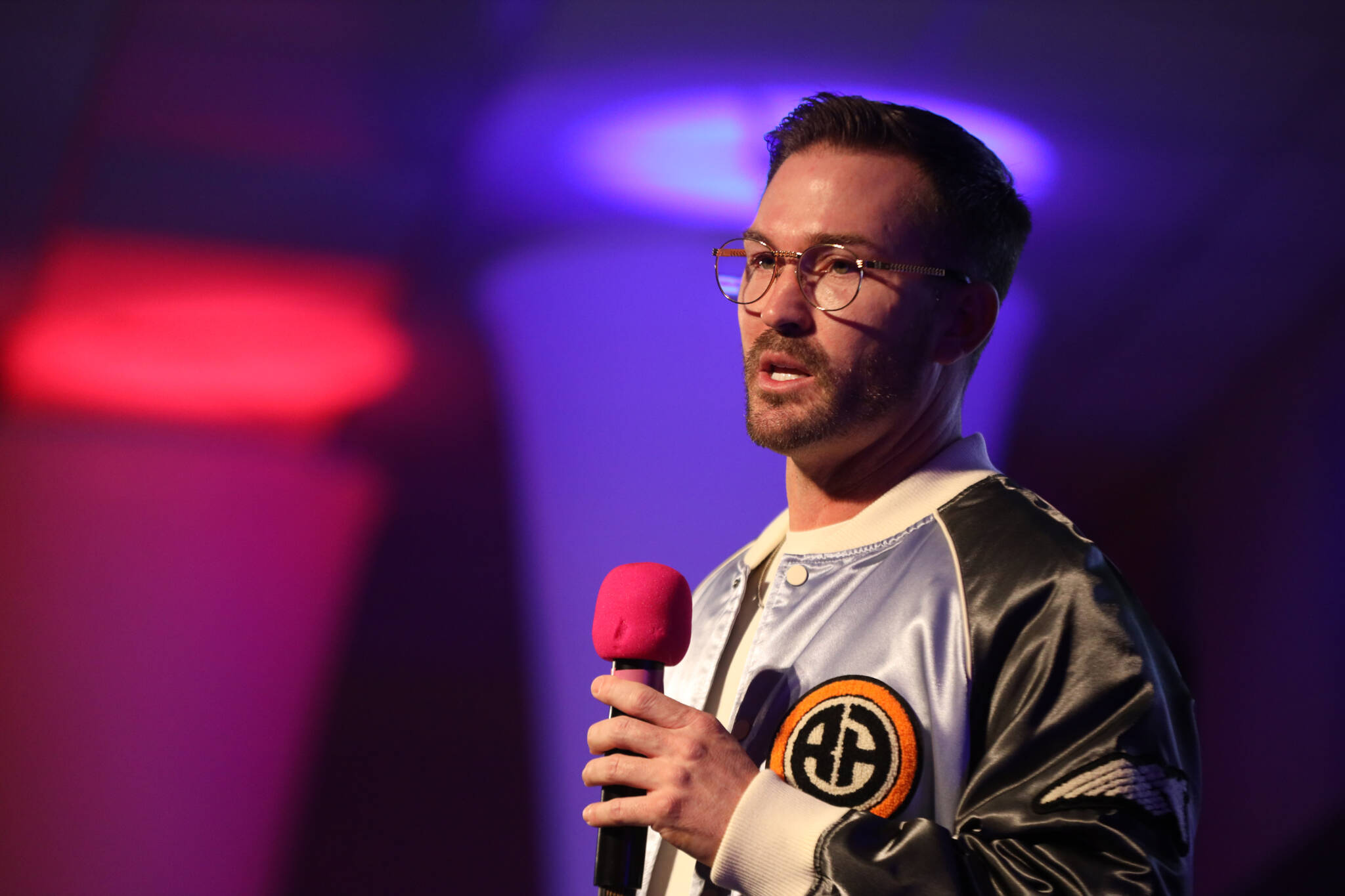For many, going to the Olympics seems like an impossible goal. For Tony Hoffman, going to the Olympics was just one of the four major goals he set for himself while he was serving time in prison.
Hoffman, a former professional BMX race and Olympic coach, became addicted to drugs and alcohol as a teenager after struggling with severe anxiety, depression and suicidal ideation.
As an early adult, while still wrapped in a world of addiction, he badly wanted to escape, and made what he described as the “biggest mistake” of his life. In 2004, Hoffman robbed his friend’s mom at gunpoint, which led him to homelessness and to eventually serve two years in prison.
Thursday, he told a full audience in the Elizabeth Peratrovich Hall that those struggles made him who he is, and sharing his story is how he has been able to find a safe space for himself and hopes to do the same for others struggling with those same battles.
“I never got to sit down and hear someone else had the same struggle as me,” Hoffman said. “What I’ve learned in life is that vulnerability is the true strength in numbers, because when we all learn to be vulnerable we can all sit back at this table and discuss what our shortcomings are, we can discuss what our struggles are.”
His speech marked the “Final Chapter” of the Pillars of America speakers series that has been put on by the Juneau Glacier Valley Rotary Club for more than three decades.
The series is now sunsetted, Rotary Club President Marc Guevarra announced to the audience before Hoffman took the stage.
“Rather than thinking of this as the end, I’d like you all to focus on the great memories and the lives touched and the positivity that has come from this program over the years,” Guevarra said.
During his talk, Hoffman said while he was incarcerated, he set four goals for himself: become a professional BMX racer, go to the Olympics, start a nonprofit and become a speaker to help others struggling with mental health and substance abuse find community and hope.
Now, those might seem like nearly impossible goals, but Hoffman said by focusing on the “small things” like brushing his teeth and making his bed, he was able to build a “code of conduct” for himself and build the motivation to do better each and every day until he reached his goals.
And he did just that. Though he was an all-star BMX racer in his youth, he stopped competing in the sport when the addiction overtook his life as a teenager. Once he left prison, Hoffman said he began to race again and quickly rose to fame, becoming one of the top racers in the sport for several years. However, during that time he suffered a severe leg injury that took him from racing, but Hoffman said he used the skills he learned from competing in the sport to begin coaching.
That led him to coach BMX rider Brooke Crain, who took fourth place at the Rio Olympic Games in 2016 under the guidance of Hoffman.
Hoffman said since being incarcerated he has also been able to accomplish his goal to create a nonprofit, which is known as the Freewheel Project. The nonprofit works to improve the lives of at-risk youth through sports and mentoring programs.
On stage Thursday, living out his fourth goal, Hoffman said he hopes sharing his story can help break the stigmas that surround mental health struggles, suicidal ideation and substance abuse and encouraged people to be vulnerable with their struggles, and as a community come together to support those who need it.
“Community isn’t about self-glorification, it’s about supporting other people, serving people over yourself,” he said. “But we can do that if we never get to a place where we actually see that vulnerability and showing our weaknesses or our struggles is how we actually get to a place where we find out real strengths.”
• Contact reporter Clarise Larson at clarise.larson@juneauempire.com or (651)-528-1807. Follow her on Twitter at @clariselarson.

